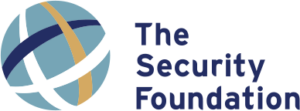News
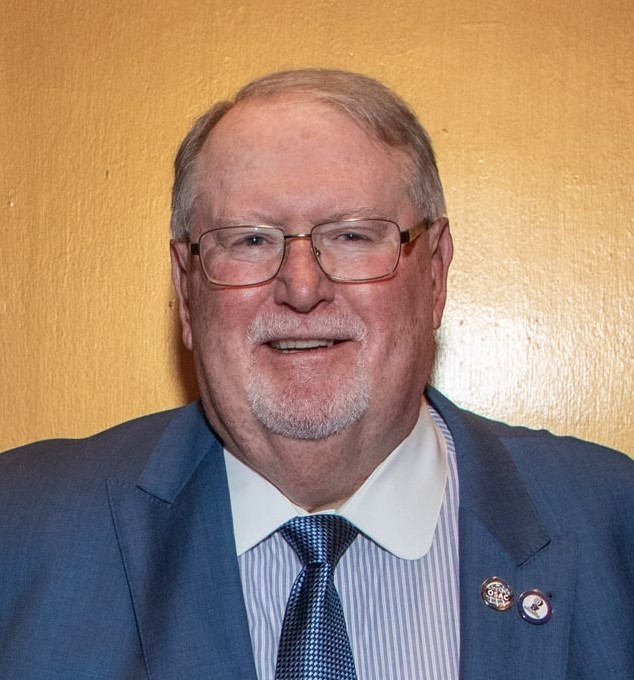
Greg Bujac’s Leadership Lessons
Greg Bujac recently retired after 17 years with the U.S. Department of State’s Overseas Security Advisory Council (OSAC) and 32 years with the U.S. Department of State. He isn’t comfortable with the title of “icon,” but he is certainly one of the icons of the global security industry.
He began his career in the State Department mailroom. Greg worked his way up to such positions Regional Security Officer in Italy, Israel and Belgium, U.S. Consul General at Sydney, Australia, and Chief of Physical Security for the entire State Department—a job he was in for just three months before the bombing of the Embassy in Beirut in 1984.
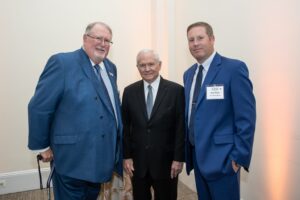
Greg completed his remarkable Foreign Service career as Principal Deputy Assistant Secretary of State for Diplomatic Security and Director of the Diplomatic Security Service. After which, he designed and implemented global supply chain security programs and processes for the Altria Family of Companies (Philip Morris USA, Kraft Foods, Philip Morris International, Miller Brewing Company and Philip Morris Capital Corporation.)
Generations of security professionals know Greg through his work as OSAC Senior Advisor, a position that continued his lifelong focus on mentoring the next generation of security leaders. This role also earned Greg the affectionate nickname of “The Grand One” for his vast knowledge, leadership experience and boundless enthusiasm for helping others embrace their duty of care.
We asked Greg his top leadership lessons from a career—and life—well lived. Here’s what he had to share:
Learn the job first and don’t take anything for granted. You need to understand what is required. I started in the mailroom and worked my way up to director. Starting there gave me good knowledge of what was going on. Advance your career by volunteering [for job responsibilities]. Lots of things I ended up doing were not in my job description.
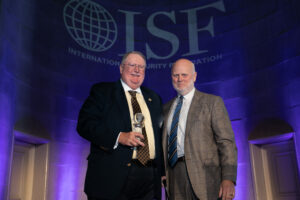
Be open with people to understand their situation and yours. In the 1980s, Asst. Sec. Bob Lamb asked me to be Head of the Technical Security with the State Department. I am not an engineer; I was a Special Agent. But Bob thought that I would do a good job with engineers. They resented it at first, but I was able to convince them to do something out of their comfort zone. I implored them to take on the job of cyber security, though we called it “computer security” at the time. We got things done because of compatibility and focusing on our goals and objectives, not on the mundane stuff. Being able to set goals as a team is critical.
Use humor as a way to get things done. I’ve always thought humor is a great way to get through things. There were occasions, sure, when I shouldn’t have, but most of the time, it worked out fine.
Embrace challenges and new ideas. Before the bombing of the Embassy in Beirut, the Foreign Buildings Office (FBO) had a program and $200 million in funding for physical improvements [to U.S. Embassies] to improve security, but it had gotten mired in bureaucracy. I asked for the funding and said that I would take care of what needs to be done. I put together what was the first interdisciplinary team of agents, engineers, budget officers, an administrative officer and me to create a plan. I always surrounded myself with good people and matched their skills to our goals to maximize our impact.
Our team focused on an innovative, expedient way to do things instead of what had been a traditional contracting route. With the procurement executive, we created a competition, analyzed and pre-qualified companies. We had our threat analysis people give us data on the highest-threat posts, so we could determine what needed to be addressed to improve Embassy safety. We spent the money on nine companies who had the architects, engineers and contractor expertise to improve security at 40 of our highest-threat posts. It was so successful that we went to Congress to give us more money, and they did. I got a reputation for saying “no,” too, after some battles with a few ambassadors over what to fund, but we did everything we could to help.
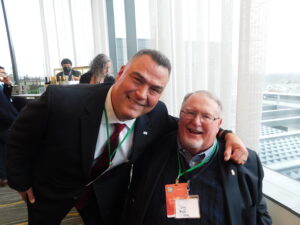
Know how to articulate and explain the value of your security program. If you can’t do this, you’re not going to be successful. You need to know how your plan and program are going to be implemented and what it’s going to cost—and how it’s going to benefit your organization. If you can’t show the savings of your security program, you are going to have difficulty selling it to your organization’s leadership. Look at the big picture to prioritize and explain your program and security procedures and methods, so they have the most impact and fit the threat. I remember briefing Sec. Shultz on OSAC’s programs using flip charts.
It’s critical for us and for other organizations to learn from others who have done this work. I’m a little embarrassed by the term “mentor.” I was never purposefully doing it, but it’s important [to help emerging leaders]. I have mentored people in every job I’ve had. We are going to live our lives based on what the next generation does. If the next generation can provide better security, we are going to be much safer. Early in my career, we were dependent on the military for many things. Now, DSS and other organizations have their own bomb squads and mobile security divisions. The groundwork has been laid, and we know what to do next. Mentoring helps create the leaders who will get us there.
Thank you, Greg, for an incredible life of service!
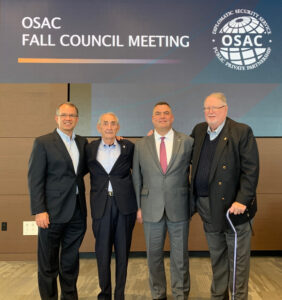
Chairman David Fields; Carlos Matus, Principal Deputy Assistant Secretary and Director of the Diplomatic Security Service; and Greg.
